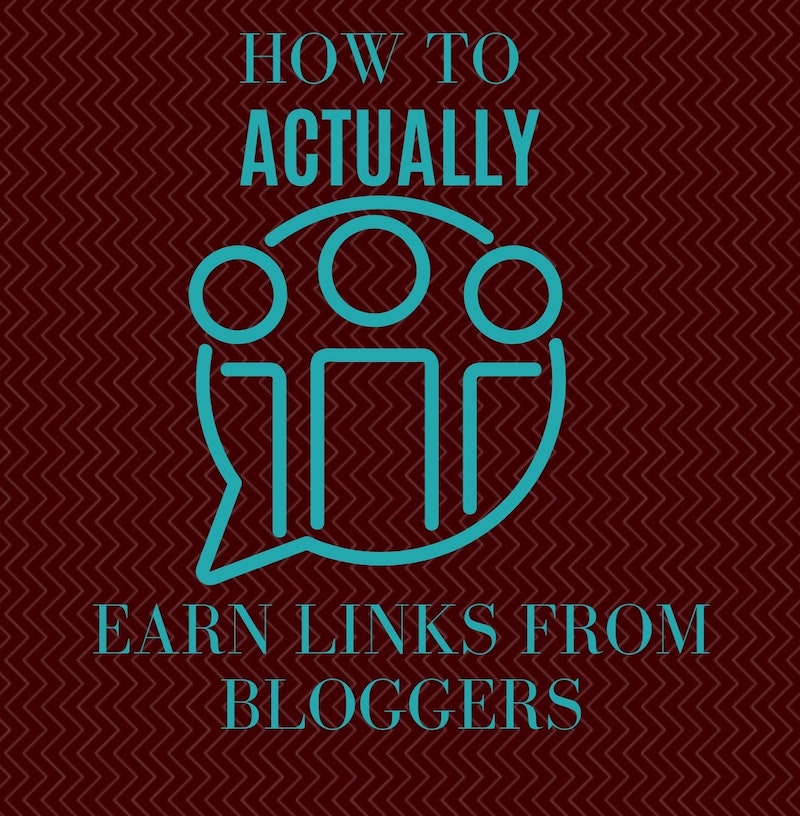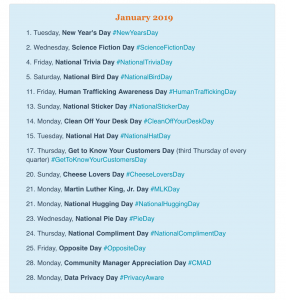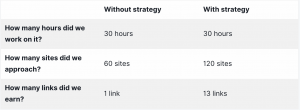
If you’ve ever been tasked with building links for a website, you know it’s one of the hardest parts of SEO. Most SEO specialists spend a lot of time sending outreach emails to bloggers asking for a link, and most of those emails go unanswered. You can easily send over 100 emails without earning one link—or, in a campaign considered successful, get one or two for all that work.
Prospect.io shared the numbers of a couple of their campaigns. Their less successful campaign earned them one link per 60 sites they reached out to, and even their more successful one only netted them 13 links per 120 sites. Total that’s over 150 people that didn’t respond—or at least, didn’t respond positively.
So why don’t most link building campaigns work?
As a blogger that receives frequent link building emails, I can provide an explanation of the main reasons most link building emails I get don’t work, as well as a description of the rare times link building outreach did get results.
Link Building Pitches That Won’t Work
The most common type of link building email I get that never yields a positive response looks something like this:
Dear Kristen (or worse, Dear Austin-copywriter.com),
I came across your piece: <link to something I’ve written>. What a useful resource!
I thought you might like to know, we recently published a piece on <related topic> which provides a ton of information that would be valuable to your readers.
Maybe you can add our link to your great piece? <their link>
It’s a polite enough email and one I can tell is applying tips that are suggested in articles around the web. It tries to demonstrate that they did some research on me to make sure the email is relevant (although actual emails sometimes undercut that point by doing this part badly). It includes flattery. And it attempts to make a case that what they’re suggesting will be useful to my audience.
But none of that really matters for some key reasons. Here’s why this doesn’t work.
It’s asking me to do more work.
Going back and adding a link to a piece that’s already published takes time out of my busy day. And in order to make sure the link is added in a way that’s natural and relevant, I’d generally have to re-write some part of the piece to make it work.
The likelihood that putting that work in would actually result in a blog post that’s better for my audience or produces better results for me is low. In most cases, it’s frankly nonexistent. The only person that work would benefit is the person sending the email—a total stranger to me.
For pieces I wrote for clients, it’s even asking me to ask my client to do more work.
Many of these emails aren’t asking me to add links to pieces on my own blog, they’re wanting me to update blog posts I wrote for clients. When I submit a piece I wrote to a client, there’s a whole level of work in between my submission and the post going up on their site. Someone does editing work, loads it to the blog, adds images, and schedules it to be published.
Making an update to that piece isn’t as simple as me going in and changing it. At that point someone else working for that client who has the right access would have to do that work. So not only would I be doing work to figure out how to update the piece so the link would fit naturally, I’d be asking my client to do extra work to go in and make changes to the live post.
That would be an awkward ask for me at best, and something that’s just not really appropriate to ask of a client when there’s no benefit to them or me.
A decent portion of the time, the email is sloppy or the link isn’t relevant.
Even if you do everything right in a link building pitch like this, you won’t get that link because of the two points above. But the majority of these emails I get don’t do everything right.
In fact, the most common page I get people asking me to add a link to is this one:
http://austin-copywriter.com/writing-samples/
If you took two seconds to read that URL and figure out why that page is not a logical target for someone else’s link building campaign, then you just did more work than most of the people sending me these emails. You don’t even have to click through—the reason’s right there in the URL that these people include in their very email.
Sometimes the pages they ask me to add links to are tag or category pages on the blog—not quite as egregious as the Writing Samples page, but still not a piece of content I could even add your link to if I wanted to.
Sometimes the subject line of the email doesn’t match the contents, an obvious copy-and-paste error. Or sometimes they get my name wrong or say things that make it clear they don’t understand I’m a freelance writer (something that’s extremely obvious in the first few seconds you spend on my site).
In short, the attempts to show they did their research and made sure the email was relevant fail, in obvious and ridiculous ways.
Link Building Pitches that Do Work
In the eight years I’ve been blogging around the web, I’ve gotten just a couple of link building pitches that actually do lead to the source earning new links.
Here’s what they did differently.
They made my life easier.
That’s it. That’s the big secret.
Instead of asking me to do more work. A good link building email finds a way to make me do less.
Specifically, these pitches:
- Suggested topic ideas that hadn’t been written about yet.
For many of my clients, part of my job is coming up with blog topics. I have to do a certain amount of research and brainstorming on a regular basis, which takes work and time. If you take the time to look at the blog, find a gap in the current coverage (that in some way relates to your business or content), and send a suggestion, you’re helping me out.
If you include a few links in your email to resources you’ve created that will jump start my research process on the subject, even better! And when I start writing, I’ll include a link back to those helpful resources, both as a thanks for the help, and because they genuinely provide useful, relevant information to my audience.
- Made sure the topics they provided were relevant to my audience.
I mentioned how the email templates that don’t work often pay lip service to thinking about my audience, but you have to go beyond lip service here. Make sure you figure out who a particular blog is targeting and suggest topics that will matter to them.
If you’re link building for a security company and contact me about a piece for a client’s blog that has an audience of seniors, your pitch should have a senior-specific angle. Don’t suggest a post on “How to Make Your Home More Secure,” go for something like “How Seniors Living Alone Can Stay Safe.”
And often getting more specific is better, since broad topics have usually already been done. Think about how you can use your expertise (or your client’s expertise) to help suggest a unique angle.
- Tied the pitch into to a trending topic or date.
Many of my clients love it when a piece can be tied back to a specific holiday or trending topic coming up—even the kind of goofy ones, like National Ice Cream Day (July 21, if you’re curious). Look for something that makes your pitch more timely. HubSpot has a handy calendar with all the unofficial holidays you can use in your pitches.

Keep in mind here though that some businesses plan their schedules out far in advance. Pitching a topic relevant to National Popcorn Lover’s Day (March 14) in late February may work out for you, but often looking ahead a couple of months will work better.
Start Actually Earning Links
Does this sound like more work than copy-and-pasting the same template 100 times? You betcha.
Will it get you more than one link per every 100 or more emails? Almost certainly, if you do it well.
Take time to learn who you’re contacting, who their audience is, and what the blog regularly covers. Then suggest a new post that you can be a valuable resource to help them write. That’s much more likely to earn you a link than asking them to update an old post they’ve already published.



